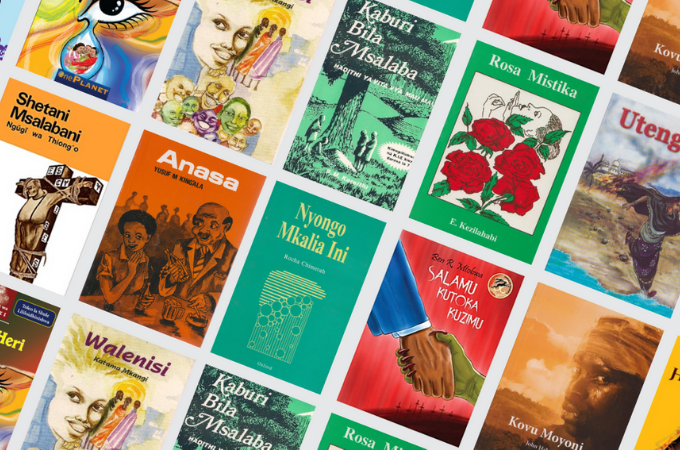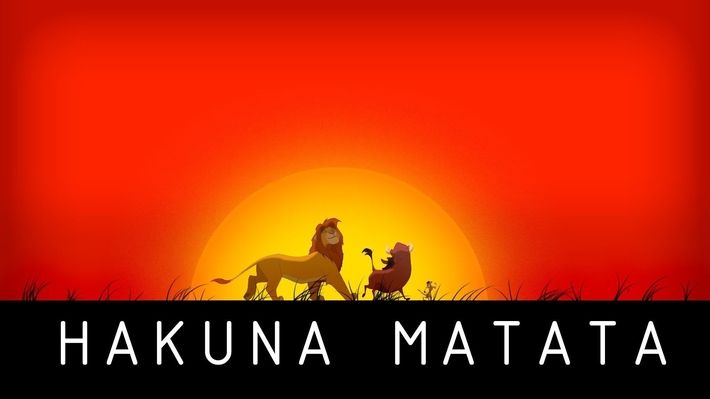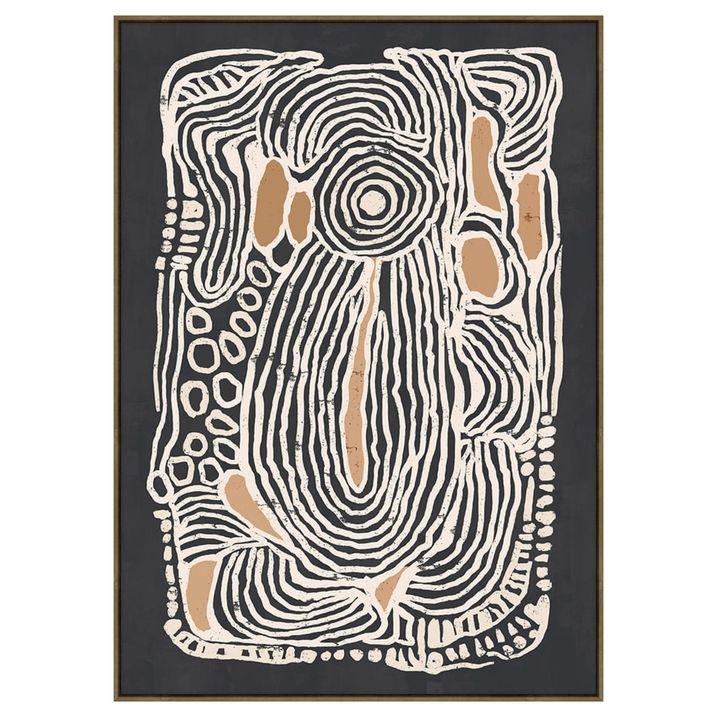Kuwakaribisha - Hello in Swahili
-
Kuwakaribisha is a common greeting in Swahili. We present to you some interesting information about the language.
In case you are one of them who speak Swahili and wish to report inconsistencies, please reply to this topic.
Swahili, also known by its native name Kiswahili, is a Bantu language and the native language of the Swahili people.
The name Swahili comes from the Arabic word Sawahil and means "coastal dwellers".
Swahili is predominantly a mix of local Bantu languages and Arabic. Swahili also has English, Persian, Portuguese, German, and French influences due to trade contact.

(Image Courtesy: https://alchetron.com/)Swahili is the lingua franca of the East African Union and is the official language of Tanzania, Kenya, and the Democratic Republic of the Congo. It is also widely spoken in Uganda and, in smaller numbers in Burundi, Rwanda, North Zambia, Malawi, and Mozambique.
The earliest known documents of the Swahili language are letters written in Arabic script in 1711 in the region of Kilwa, present-day Tanzania. They are now preserved in the Historical Archives of Goa, India.
Swahili is the easiest African language for English speakers to learn, as it’s one of the few Sub-Saharan African languages without a lexical tone, similar to English. Besides, it is also easier to read as Swahili words are pronounced the same way they are written.

(Image Courtesy: https://brittlepaper.com/)Swahili people have a very rich literary culture that they cherish, as shown by the dozens of myths and legends that exist in their language. For language learners, reading these folkloric texts could be an interesting and enriching way to learn Swahili.
Several international media outlets have various Swahili programs, such as BBC Swahili.

(Image Courtesy: Pinterest)Fun fact: the iconic line from The Lion King "Hakuna Matata" is a Swahili expression meaning “no worries”. It is a combination of the words Hakuna (‘there is not’) and Matata (‘problem’ or ‘worries’).
Swahili culture is the product of the history of the coastal part of the African Great Lakes region.

(Image Courtesy: https://kalliemamba.com/)The diverse history of the Swahili Coast has also resulted in multicultural influences on Swahili arts, including furniture and architecture. Swahili designs are primarily geometric.
The most typical musical genre of Swahili culture is Taarab (or Tarabu), sung in the Swahili language. Its melodies and orchestration have Arab and Indian influences, although Western instruments, such as guitars, are sometimes used.

(Image Courtesy: https://lamuislandproperty.com/)Swahili architecture, a term used to designate a whole range of diverse building traditions practiced or once practiced along the eastern and southeastern coasts of Africa, is in many ways an extension of mainland African traditions, although structural elements, such as domes and barrel vaulting, clearly connect to Persian Gulf area and South Asian building traditions as well. Exotic ornament and design elements are also present in their architecture.
Hope you like it, if you know any other fascinating facts about Swahili, let us all know!
Source: https://courses.lumenlearning.com/
https://www.languagetrainers.ca/
https://theculturetrip.com/
https://en.wikipedia.org/ -
Kuwakaribisha is a common greeting in Swahili. We present to you some interesting information about the language.
In case you are one of them who speak Swahili and wish to report inconsistencies, please reply to this topic.
Swahili, also known by its native name Kiswahili, is a Bantu language and the native language of the Swahili people.
The name Swahili comes from the Arabic word Sawahil and means "coastal dwellers".
Swahili is predominantly a mix of local Bantu languages and Arabic. Swahili also has English, Persian, Portuguese, German, and French influences due to trade contact.

(Image Courtesy: https://alchetron.com/)Swahili is the lingua franca of the East African Union and is the official language of Tanzania, Kenya, and the Democratic Republic of the Congo. It is also widely spoken in Uganda and, in smaller numbers in Burundi, Rwanda, North Zambia, Malawi, and Mozambique.
The earliest known documents of the Swahili language are letters written in Arabic script in 1711 in the region of Kilwa, present-day Tanzania. They are now preserved in the Historical Archives of Goa, India.
Swahili is the easiest African language for English speakers to learn, as it’s one of the few Sub-Saharan African languages without a lexical tone, similar to English. Besides, it is also easier to read as Swahili words are pronounced the same way they are written.

(Image Courtesy: https://brittlepaper.com/)Swahili people have a very rich literary culture that they cherish, as shown by the dozens of myths and legends that exist in their language. For language learners, reading these folkloric texts could be an interesting and enriching way to learn Swahili.
Several international media outlets have various Swahili programs, such as BBC Swahili.

(Image Courtesy: Pinterest)Fun fact: the iconic line from The Lion King "Hakuna Matata" is a Swahili expression meaning “no worries”. It is a combination of the words Hakuna (‘there is not’) and Matata (‘problem’ or ‘worries’).
Swahili culture is the product of the history of the coastal part of the African Great Lakes region.

(Image Courtesy: https://kalliemamba.com/)The diverse history of the Swahili Coast has also resulted in multicultural influences on Swahili arts, including furniture and architecture. Swahili designs are primarily geometric.
The most typical musical genre of Swahili culture is Taarab (or Tarabu), sung in the Swahili language. Its melodies and orchestration have Arab and Indian influences, although Western instruments, such as guitars, are sometimes used.

(Image Courtesy: https://lamuislandproperty.com/)Swahili architecture, a term used to designate a whole range of diverse building traditions practiced or once practiced along the eastern and southeastern coasts of Africa, is in many ways an extension of mainland African traditions, although structural elements, such as domes and barrel vaulting, clearly connect to Persian Gulf area and South Asian building traditions as well. Exotic ornament and design elements are also present in their architecture.
Hope you like it, if you know any other fascinating facts about Swahili, let us all know!
Source: https://courses.lumenlearning.com/
https://www.languagetrainers.ca/
https://theculturetrip.com/
https://en.wikipedia.org/@agentcarter amazing!!
-
Kuwakaribisha is a common greeting in Swahili. We present to you some interesting information about the language.
In case you are one of them who speak Swahili and wish to report inconsistencies, please reply to this topic.
Swahili, also known by its native name Kiswahili, is a Bantu language and the native language of the Swahili people.
The name Swahili comes from the Arabic word Sawahil and means "coastal dwellers".
Swahili is predominantly a mix of local Bantu languages and Arabic. Swahili also has English, Persian, Portuguese, German, and French influences due to trade contact.

(Image Courtesy: https://alchetron.com/)Swahili is the lingua franca of the East African Union and is the official language of Tanzania, Kenya, and the Democratic Republic of the Congo. It is also widely spoken in Uganda and, in smaller numbers in Burundi, Rwanda, North Zambia, Malawi, and Mozambique.
The earliest known documents of the Swahili language are letters written in Arabic script in 1711 in the region of Kilwa, present-day Tanzania. They are now preserved in the Historical Archives of Goa, India.
Swahili is the easiest African language for English speakers to learn, as it’s one of the few Sub-Saharan African languages without a lexical tone, similar to English. Besides, it is also easier to read as Swahili words are pronounced the same way they are written.

(Image Courtesy: https://brittlepaper.com/)Swahili people have a very rich literary culture that they cherish, as shown by the dozens of myths and legends that exist in their language. For language learners, reading these folkloric texts could be an interesting and enriching way to learn Swahili.
Several international media outlets have various Swahili programs, such as BBC Swahili.

(Image Courtesy: Pinterest)Fun fact: the iconic line from The Lion King "Hakuna Matata" is a Swahili expression meaning “no worries”. It is a combination of the words Hakuna (‘there is not’) and Matata (‘problem’ or ‘worries’).
Swahili culture is the product of the history of the coastal part of the African Great Lakes region.

(Image Courtesy: https://kalliemamba.com/)The diverse history of the Swahili Coast has also resulted in multicultural influences on Swahili arts, including furniture and architecture. Swahili designs are primarily geometric.
The most typical musical genre of Swahili culture is Taarab (or Tarabu), sung in the Swahili language. Its melodies and orchestration have Arab and Indian influences, although Western instruments, such as guitars, are sometimes used.

(Image Courtesy: https://lamuislandproperty.com/)Swahili architecture, a term used to designate a whole range of diverse building traditions practiced or once practiced along the eastern and southeastern coasts of Africa, is in many ways an extension of mainland African traditions, although structural elements, such as domes and barrel vaulting, clearly connect to Persian Gulf area and South Asian building traditions as well. Exotic ornament and design elements are also present in their architecture.
Hope you like it, if you know any other fascinating facts about Swahili, let us all know!
Source: https://courses.lumenlearning.com/
https://www.languagetrainers.ca/
https://theculturetrip.com/
https://en.wikipedia.org/ -
Kuwakaribisha is a common greeting in Swahili. We present to you some interesting information about the language.
In case you are one of them who speak Swahili and wish to report inconsistencies, please reply to this topic.
Swahili, also known by its native name Kiswahili, is a Bantu language and the native language of the Swahili people.
The name Swahili comes from the Arabic word Sawahil and means "coastal dwellers".
Swahili is predominantly a mix of local Bantu languages and Arabic. Swahili also has English, Persian, Portuguese, German, and French influences due to trade contact.

(Image Courtesy: https://alchetron.com/)Swahili is the lingua franca of the East African Union and is the official language of Tanzania, Kenya, and the Democratic Republic of the Congo. It is also widely spoken in Uganda and, in smaller numbers in Burundi, Rwanda, North Zambia, Malawi, and Mozambique.
The earliest known documents of the Swahili language are letters written in Arabic script in 1711 in the region of Kilwa, present-day Tanzania. They are now preserved in the Historical Archives of Goa, India.
Swahili is the easiest African language for English speakers to learn, as it’s one of the few Sub-Saharan African languages without a lexical tone, similar to English. Besides, it is also easier to read as Swahili words are pronounced the same way they are written.

(Image Courtesy: https://brittlepaper.com/)Swahili people have a very rich literary culture that they cherish, as shown by the dozens of myths and legends that exist in their language. For language learners, reading these folkloric texts could be an interesting and enriching way to learn Swahili.
Several international media outlets have various Swahili programs, such as BBC Swahili.

(Image Courtesy: Pinterest)Fun fact: the iconic line from The Lion King "Hakuna Matata" is a Swahili expression meaning “no worries”. It is a combination of the words Hakuna (‘there is not’) and Matata (‘problem’ or ‘worries’).
Swahili culture is the product of the history of the coastal part of the African Great Lakes region.

(Image Courtesy: https://kalliemamba.com/)The diverse history of the Swahili Coast has also resulted in multicultural influences on Swahili arts, including furniture and architecture. Swahili designs are primarily geometric.
The most typical musical genre of Swahili culture is Taarab (or Tarabu), sung in the Swahili language. Its melodies and orchestration have Arab and Indian influences, although Western instruments, such as guitars, are sometimes used.

(Image Courtesy: https://lamuislandproperty.com/)Swahili architecture, a term used to designate a whole range of diverse building traditions practiced or once practiced along the eastern and southeastern coasts of Africa, is in many ways an extension of mainland African traditions, although structural elements, such as domes and barrel vaulting, clearly connect to Persian Gulf area and South Asian building traditions as well. Exotic ornament and design elements are also present in their architecture.
Hope you like it, if you know any other fascinating facts about Swahili, let us all know!
Source: https://courses.lumenlearning.com/
https://www.languagetrainers.ca/
https://theculturetrip.com/
https://en.wikipedia.org/@agentcarter I have seen a few pictures of Swahili architecture and they quite resemble Roman architecture as well.

